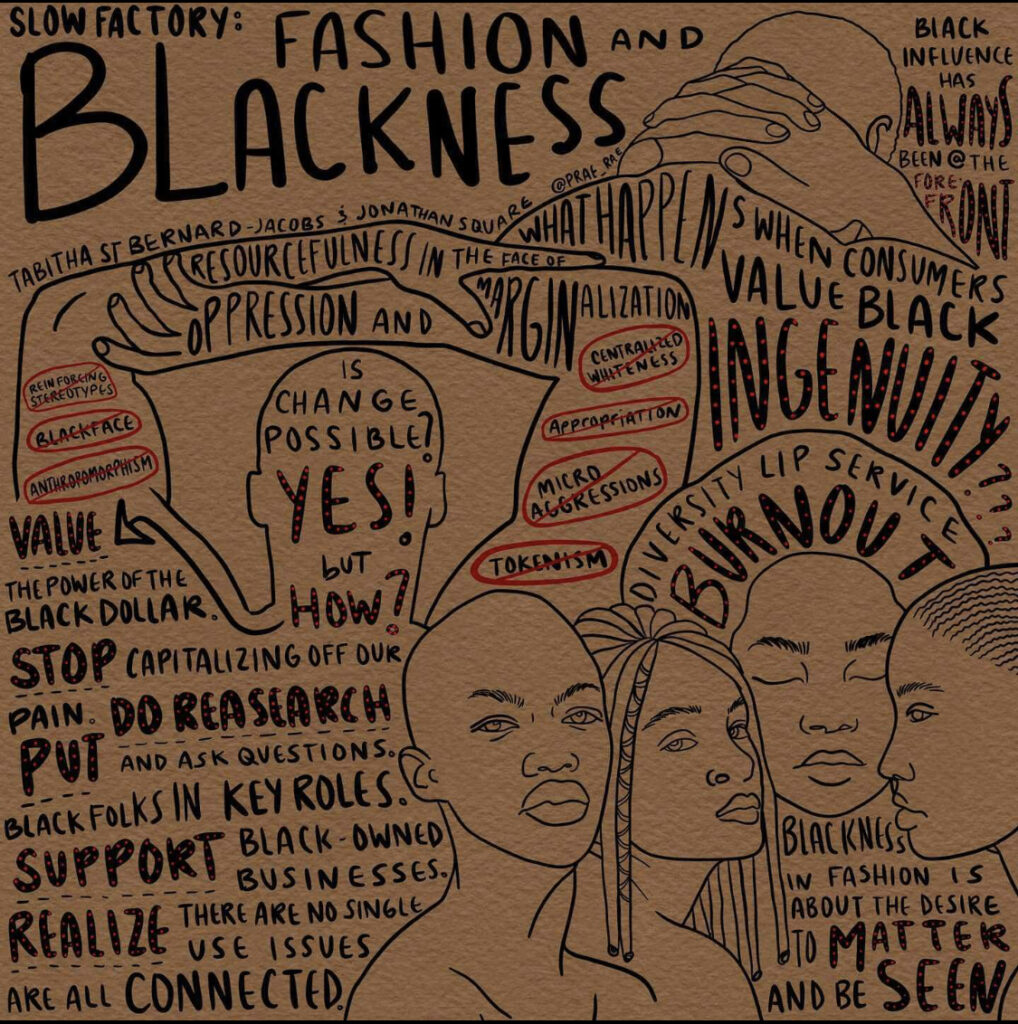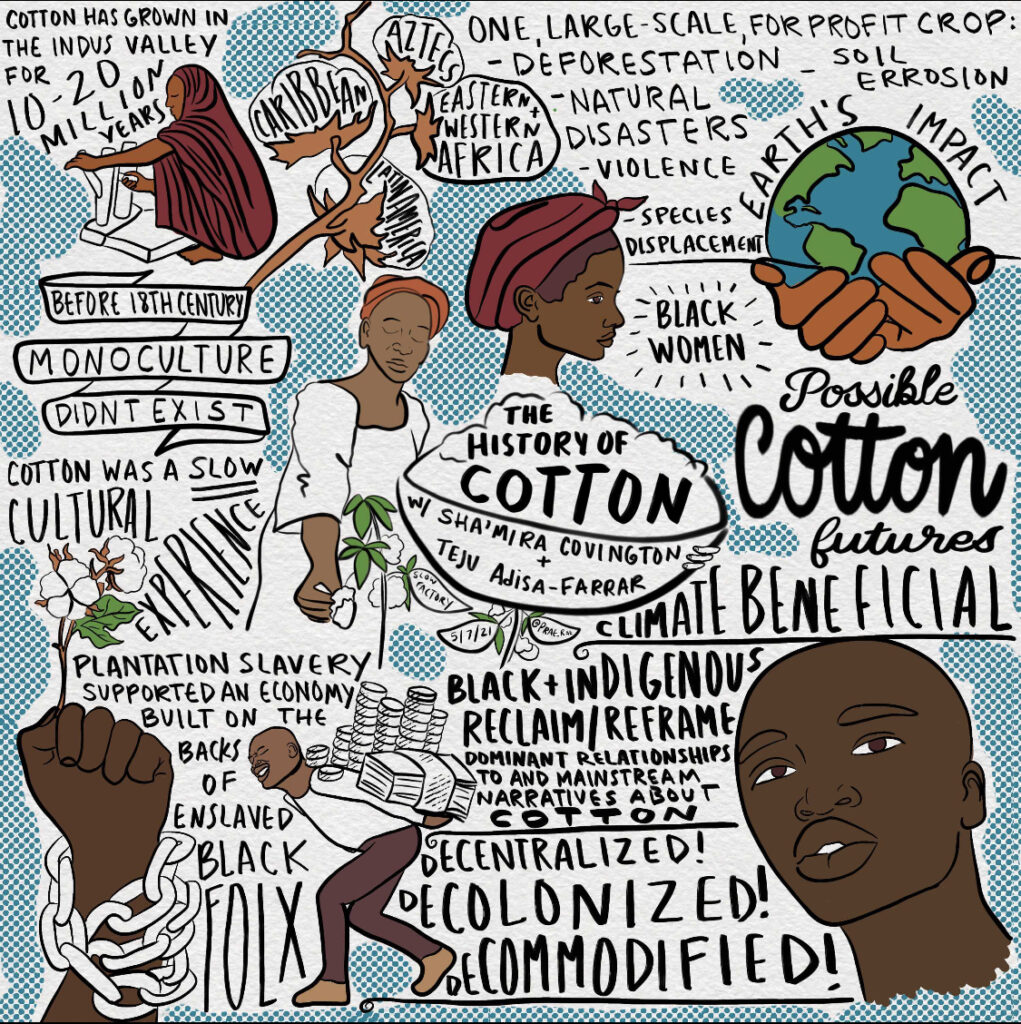| I’d like to start by saying this is just a sliver of the concerns and need for ethical and fair trade. As my colleague keeps reminding me (more like encouraging me 😉) “that’s a dissertation.” There is so much to unpack around sustainable apparel and I can’t cover it all. So I will continue to focus my energy on efforts that promote legacy for the BIPOC community as well as “others” in the community of underrepresented people. My belief in people’s ability to change isn’t conditional. Especially as it relates to sustainable fashion. I’m all about meeting people where they are at and encourage them to step into the discomfort that often comes with change. It’s easy to look away from hard truths but I want to hold space for us to sit in that discomfort and effect change. As I’m writing this I’m seeing a tremendous opportunity with Luxury brands to use business for good and support ethical and fair trade while supporting legacy building for underrepresented people and communities. Especially… given their history with co-opting which frankly is a common practice in the fashion industry. How can you support cultural appreciation and not cultural appropriations? I’ll keep beating my little 🥁 and say that it starts with buyer awareness. Only through pressure from consumers or through government regulations will we see change. Self-regulation doesn’t work and I want to be clear and not burden the consumer with taking on this burden because it’s a beast and the oneness needs to be on brands. 🌱 Leah Thomas, founder of the Intersectional Environmentalist coined the term Intersectional Environmentalism which is defined as – An inclusive form of environmentalism advocating for the protection of all people + the planet. Derived from the work of the Combahee River Collective + later, Professor Kimberlé Crenshaw, intersectional environmentalism identifies how injustices targeting frontline communities + the earth are intertwined. Conversations within environmental spaces cannot minimize or ignore the injustices targeting vulnerable communities + natural ecosystems, but rather denote the ways social inequalities influence our perception of environmentalism, regardless of how subtle or obvious. In this way, intersectional environmentalism calls for justice for people + the planet. 🌱 Cultural appropriation is also known as co-opting (definition according to Oxford). The unacknowledged or inappropriate adoption of the customs, practices, ideas, etc. of one people or society by members of another and typically more dominant people or society.For example, “his dreadlocks were widely criticized as another example of cultural appropriation.”A non-fashion example of cultural appropriation is quinoa. This food trend has made the staple of the Peruvian diet inaccessible due to the rise in cost to world demand. 🌱 Fair Trade Merriam-Webster Definition – a movement whose goal is to help producers in developing countries to get a fair price for their products to reduce poverty, provide for the ethical treatment of workers and farmers, and promote environmentally sustainable practices. 🌱 Ethical Factories – pay a living wage, respect worker’s rights. Shoutout to Paloma Rae for her beautiful illustrations and to Slow Factory for their OpenEd resources and for having an ASL interpreter for all their classes. 🌱 Dapper Dan is the atelier responsible for logo mania who was forced underground only to have luxury brands profit from it. Since resurfacing Dapper Dan has been officially brought into the Gucci family and is … . To learn more please check out The Fashion & Blackness Class with Tabitha St. Bernard-Jacobs, Jonathan Square Though the fashion industry is supposed to be a bastion of progressive politics, race continues to be a stumbling block. |
Why do industry leaders continually grapple with issues of race, representation, and inclusivity? In their class, Tabitha St. Bernard-Jacobs and Jonathan Square will provide historical context for some of fashion’s more frequent missteps in terms of representation, analyze case studies and offer solutions for more intentionality around representation in the fashion industry.
The History of Cotton with Teju Adisa-Farrar, Sha’Mira Covington In the growing sustainability movement, organic cotton has been used as a tool of greenwashing by many brands while leaving many questions about its history, farming, and processing unanswered. This course looks at the origins of cotton and how they relate to colonialism, cultural erasure, and the ongoing struggle of Black Brown and Indigenous Peoples around the world.



